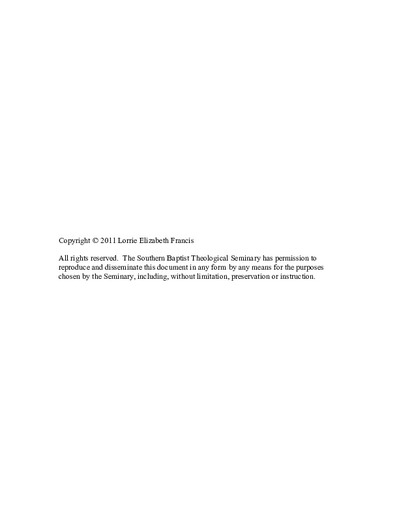Learning Theory in Adult Discipleship: A Quasi-Experiment Assessing Adult Learning in a Sunday School Context
Abstract
This study was concerned with the learning that takes place in the adult learning context of adult Sunday school classes in Southern Baptist churches. Using Lev Vygotsky's concept of the Zone of Proximal Development (ZPD), a test of learning was created and administered to adults from ages 18 to over 65 in four geographically and socio-economically diverse areas of the United States who attended Sunday school at a Southern Baptist church between January and May 2011.
Using descriptive and inferential statistics, the data gathered through the experimental protocol was analyzed to test for differences in the learning measured for control and test groups at each sample site. The results at two sample sites showed significantly higher posttest scores for the participants who took part in small group activities rather than attempting to learn alone. For the other sites, small sample sizes prevented significant results however, the data indicated that results were likely to match those of the other sites if sufficient sample data had been collected. Through multiple regression, the data was tested for a continuation of the relationship when age, gender, and education level were considered. Upon analysis it was found that only education level had a significant impact on the learning that took place. Participants who were more highly educated scored higher than those at lower education levels on the posttest. The variation is sample site was found not to be a significant factor in the scores. The study shows that the ZPD is applicable for adults, at least in the learning context of Sunday school. Additional research should consider adult learning in the ZPD in other learning contexts as well as testing other learning theories for adult learners.

